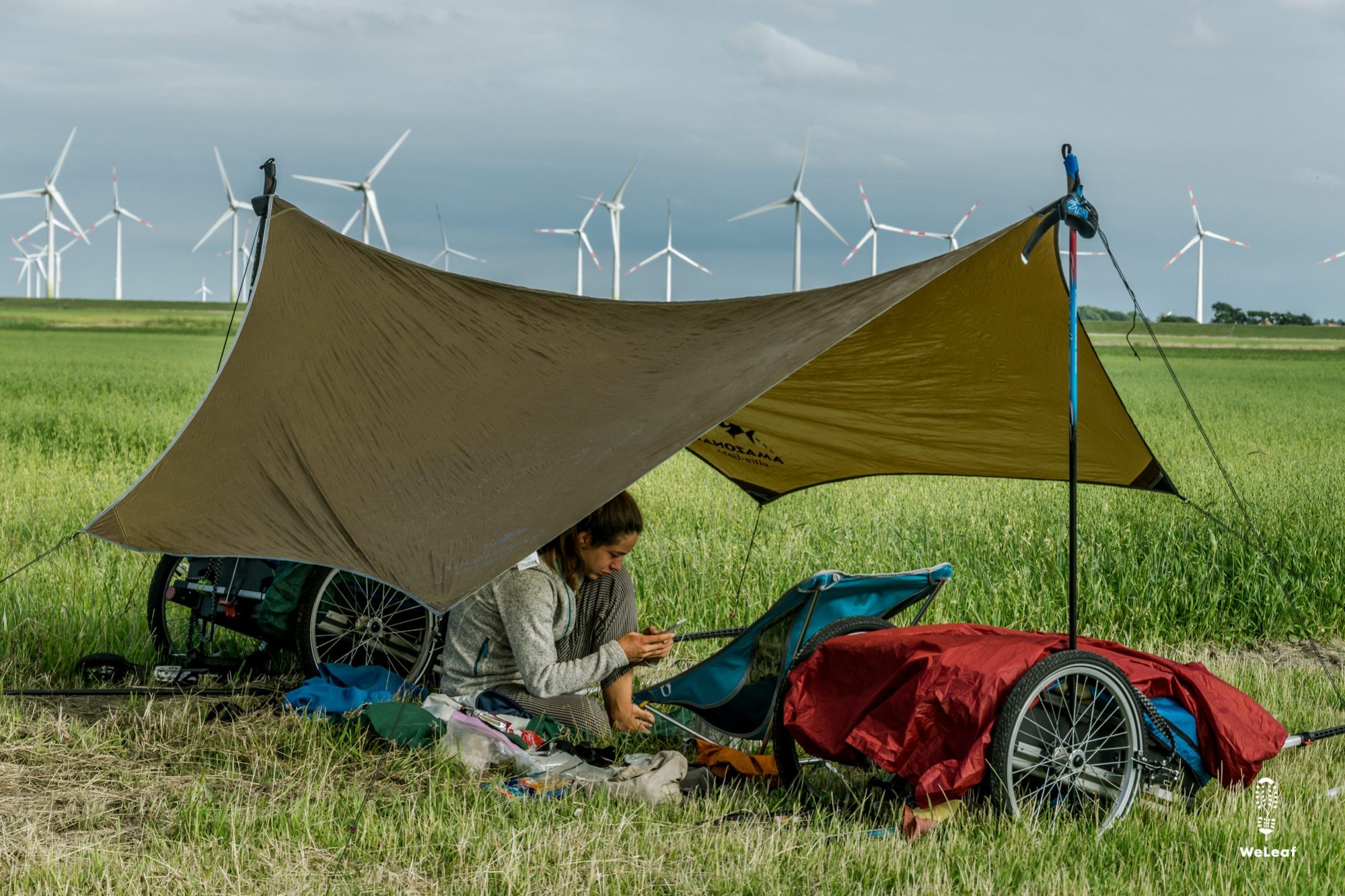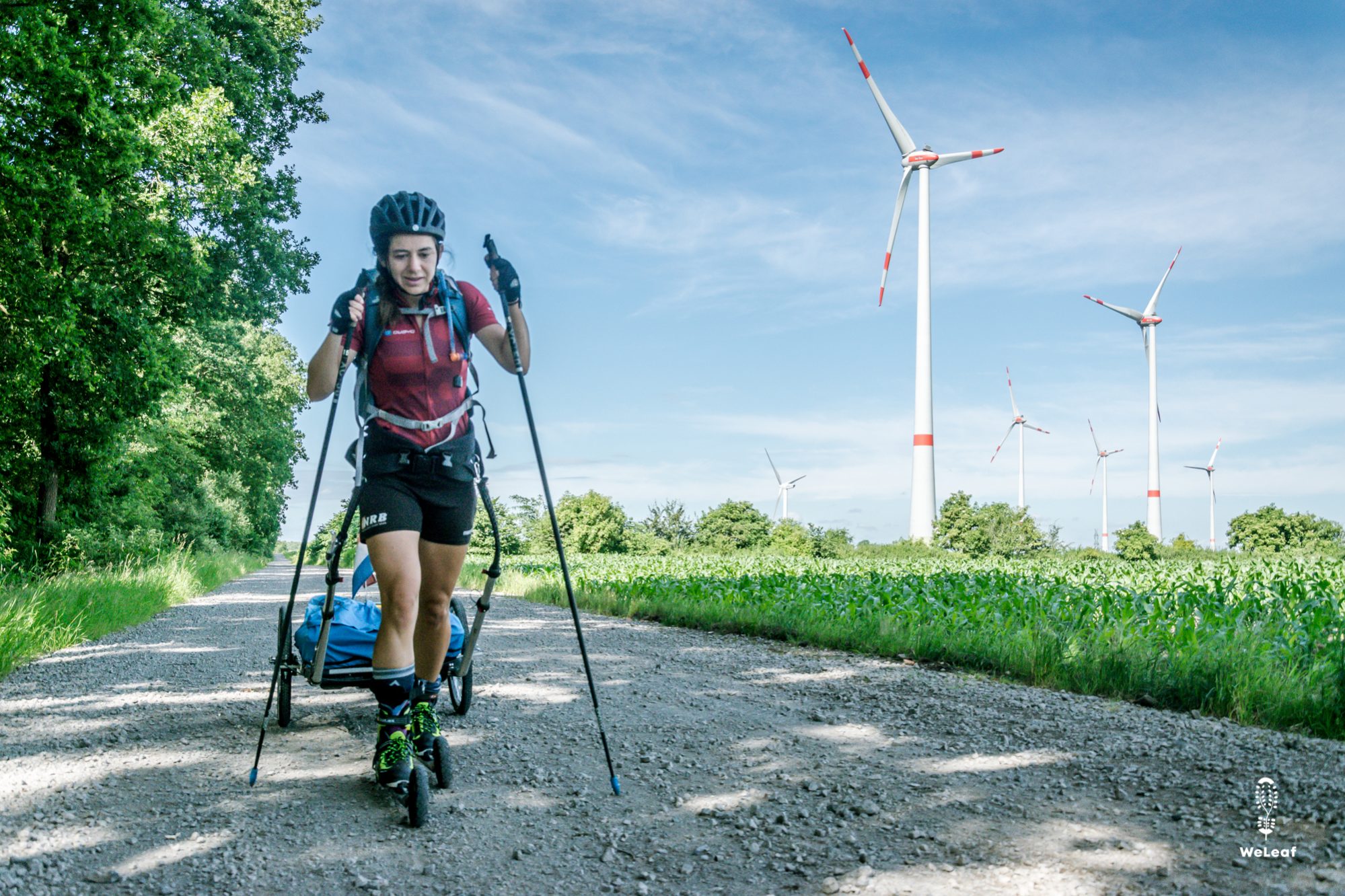
Scheisse in Germany

5 secret camping tips and tricks
July 15, 2020
God tur
July 31, 2020
Friday June 26th - German border
The border crossing was again over water, more than half of all land borders we crossed were a bridge. This time a small bicycle bridge over a ditch. No high gates, no police, no interrogations, no barriers and no stamp in the passport. We are back in Europe where all borders are open. Although Europe was locked for several months by corona, the border between the Netherlands and Germany has been open for travel again since June 15th. Too bad for us there is no sign "welcome in Germany", that was not necessary because we were immediately informed. We almost stumble into Germany.
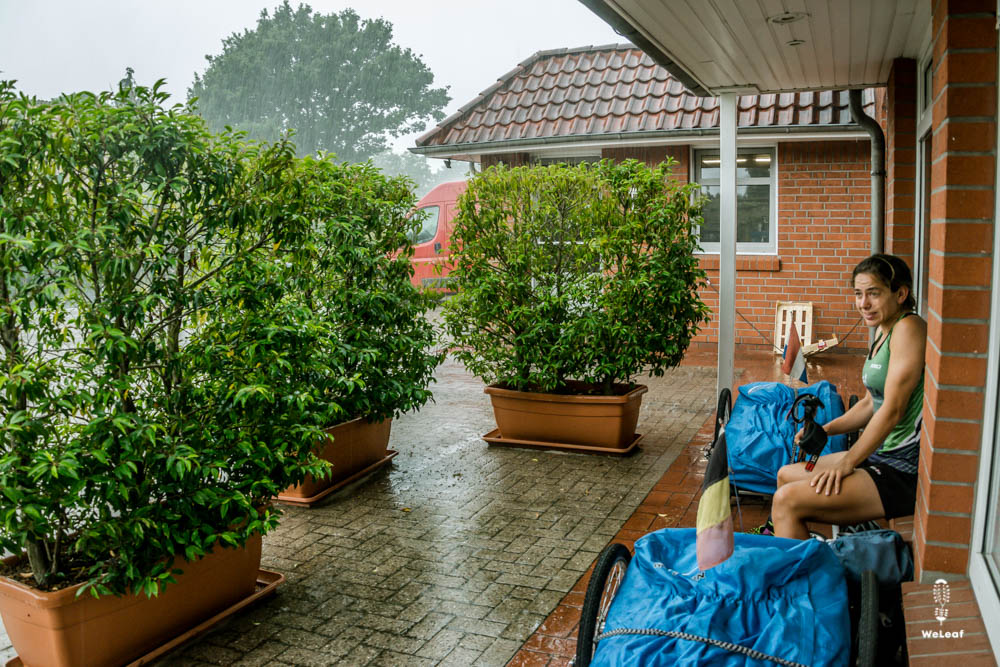
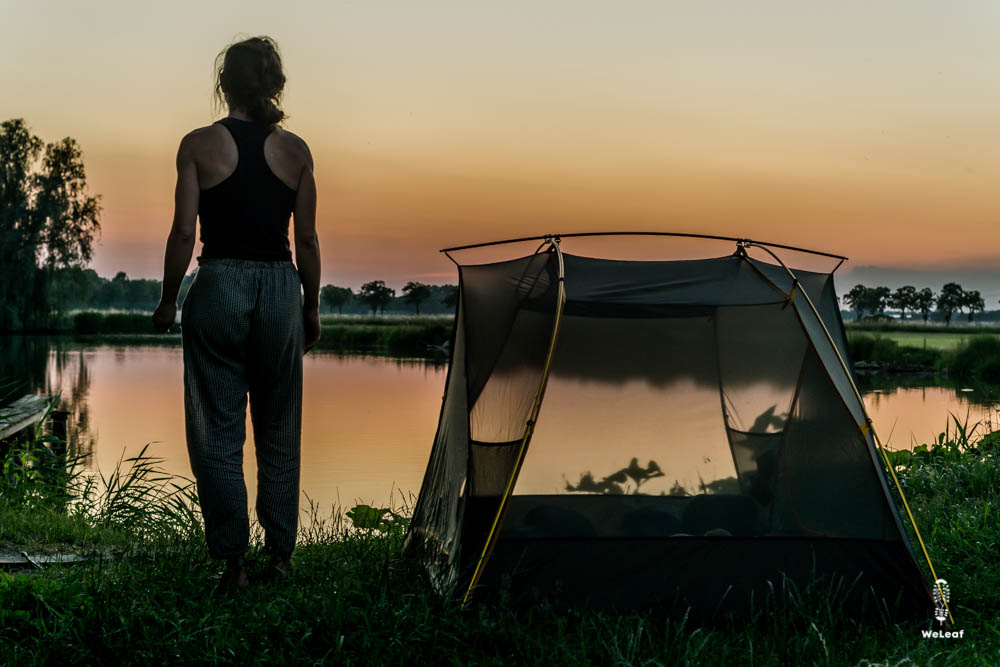
In front of us is a long street with uneven clinker brick streets. After 12 days and 400 km on skates, we already know quite well what works and what doesn't. Actually, we can roll over everything just fine. There are countless different types of asphalt, but they all roll well. Climbing hills, bridges and dikes is difficult, but we can manage it. Only those clinker bricks that are so far apart that our wheels get stuck between them are horrible. In general, it's not the wheels we tumble with, but our sticks. Roller-skiing is skating with sticks in the movement of skates. It is like cross-country skiing on wheels. Below the poles there is a steel point that grips on the road surface, but sometimes the road surface is too slippery, such as with concrete or slippery clinkers, or the grooves are too wide and our poles get stuck in between the grooves.
Our introduction to Germany is a long way with that "Scheisse Klinker" as one of our hostesses later expresses herself. We stumble forward with sticking poles. The legs are sour and just as we can get speed again, Olivier crashes. Once full on his face after one of the screws is loosened and his wheel blocks. Not much later he goes again, in the middle of a town square, this time full on his bibs when one of his poles sticks between the grooves of those Scheisse Klinkers. His arm is pulled along and he tumbles down. So, we are in Germany.
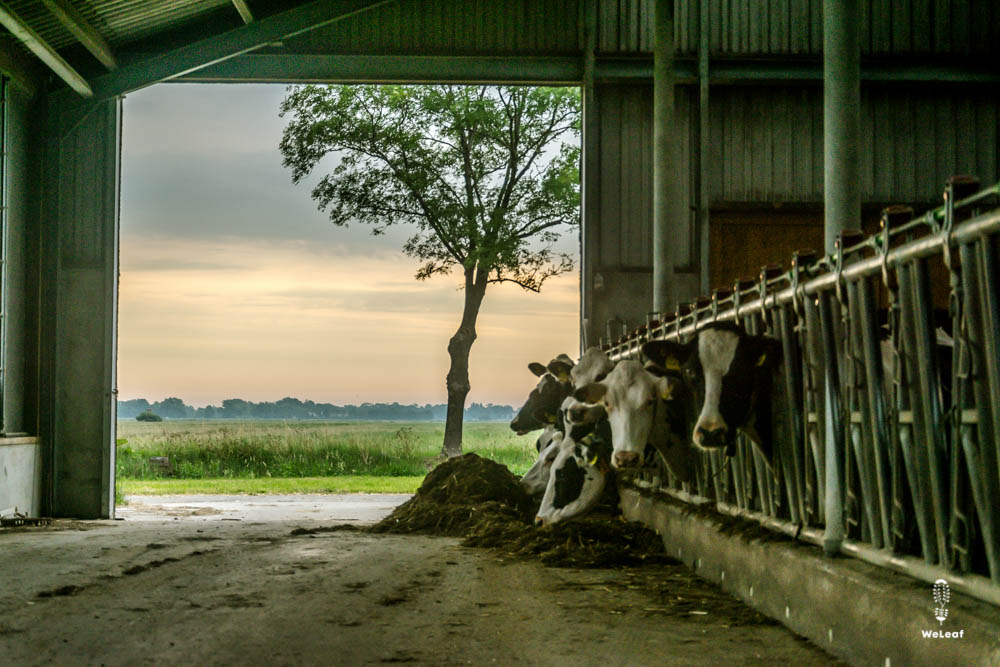
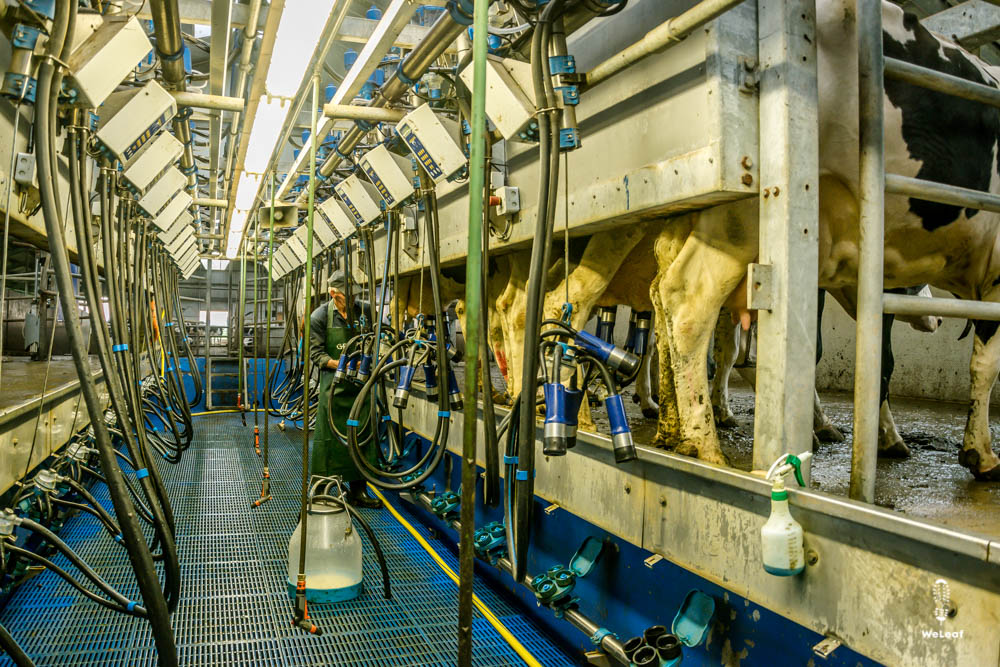
Apart from the language and the clinker bricks, Germany does not differ much from the east of the Netherlands. Many thatched roofs, cowsheds, dikes and lawns. We also pick up German pretty quickly. Olivier has had German in school for two years and Zoë five. With Olivier's language skills we are roughly on the same level. Our German is grammatically horrible, but we can make ourselves understood. Surprisingly quickly, we are already sitting at the kitchen table with people and can talk about much more than cows and calves. Although we mainly talk about cows and calves. The region is full of stables and twice we are invited to a dairy farm. The farmers proudly show us their profession. It is the first time that we see an intensive livestock farming. In South America we used to visit farmers a lot, but there was never one that had as much machinery as we see here.
At Farmer Frits’ farm we get up early at 7.30 in the morning and watch 24 cows being milked at the same time. Suction cups are manually placed on their udders and about 13-15 liters of milk is collected before the suction cups automatically fall off again. When they have all been milked, the 24 cows walk away and the next batch is loaded into the dairy. It is an intensive task every morning and evening. We see the milk robot at Werners’ farm. With 4 robots, the 200 cows milk themselves “when the pressure is high”. The cows walk into the robot themselves, the udders are cleaned by a robot arm, after which the sensor searches the nipples and then places the pistons on them. When no more milk comes out of the udders, the gate opens and the cow is back in the stable.
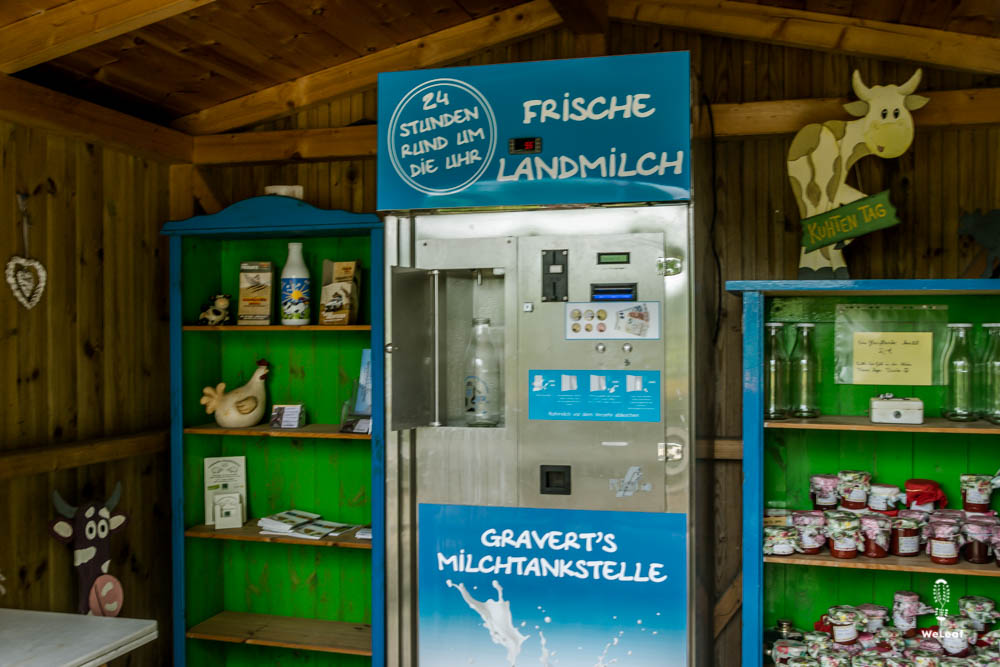
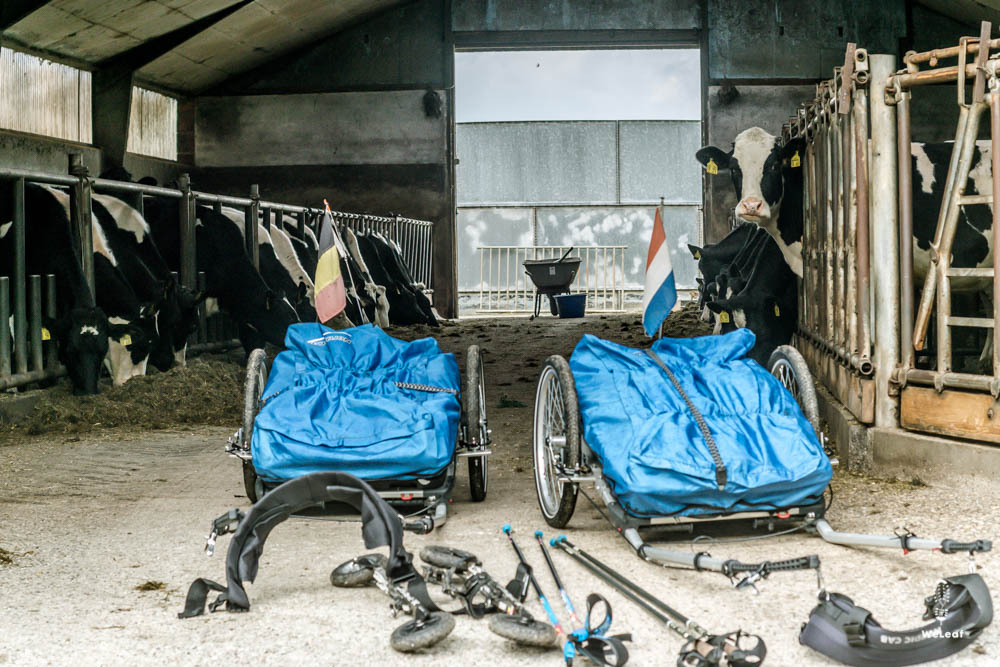
We have just showered and put on our clean clothes when we walk into Werner's cowshed. Before we enter the cowshed on our slippers Zoë says "we are not really wearing the right clothes". She just said it and one of the hoses of the milk robot comes loose and starts spraying around. All manure on the floor is sprayed up by the pressure of the hose and we feel the splashes of manure flying towards us like hail. We pretend that nothing happened and continue the tour on the farm. These farmers are used to everything and do not budge, so we do the same. Giggling, Zoë tells Olivier that there is “Scheisse” in his beard. “You are covered completely” Olivier smiles back. On the farms we learn that the milk robot is less work, but more frustration. Farmer Werner can be called from his bed at any time at night because one of his robots cannot find the nipples and his cow is trapped in the device. “As an engineer you can go to work and leave your work. As a farmer I can't leave the cows alone for a day. I never have a holiday" he says with a crooked smile, but you can see the sadness in his eyes. It is unfair. Especially the meager wages he gets back for the hard work and the few hours of sleep is sad. Currently they earn 0.26 cents per liter although 35 cents are needed to make a profit. The cows also never have a holiday, these are really machines. We are happy when we learn that we can buy our milk from machines at the farms. One euro for a liter, more expensive than in the supermarket, but 60% more income directly for the farmer. Unfortunately, for the cow it doesn’t mean more vacation, and it won’t make the farmer rich. Reading tip “eating animals”.
“When the pigeons are cooing, the sun will be looking”
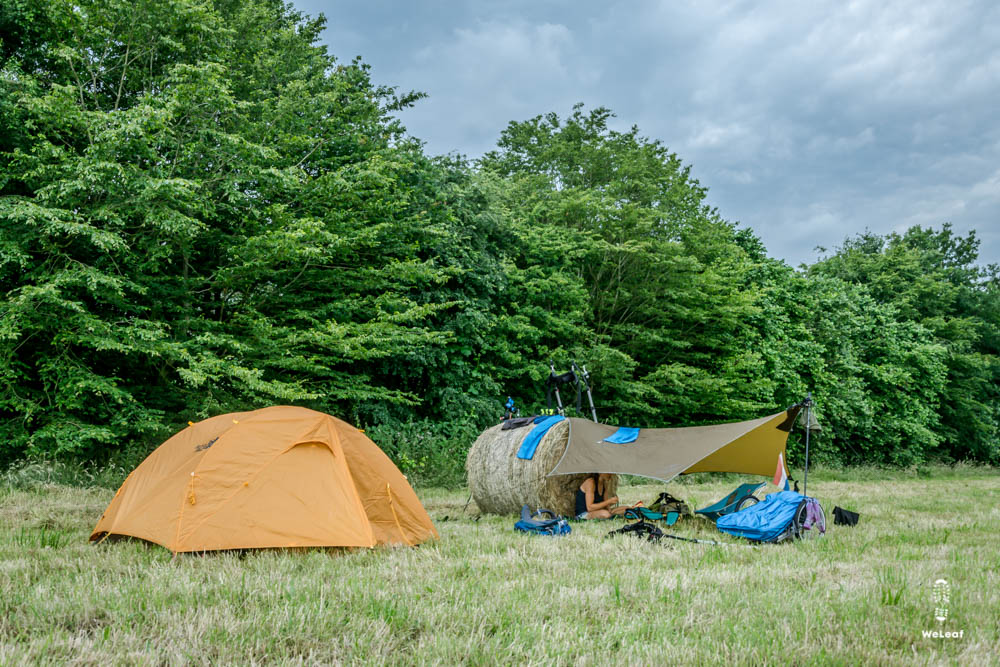
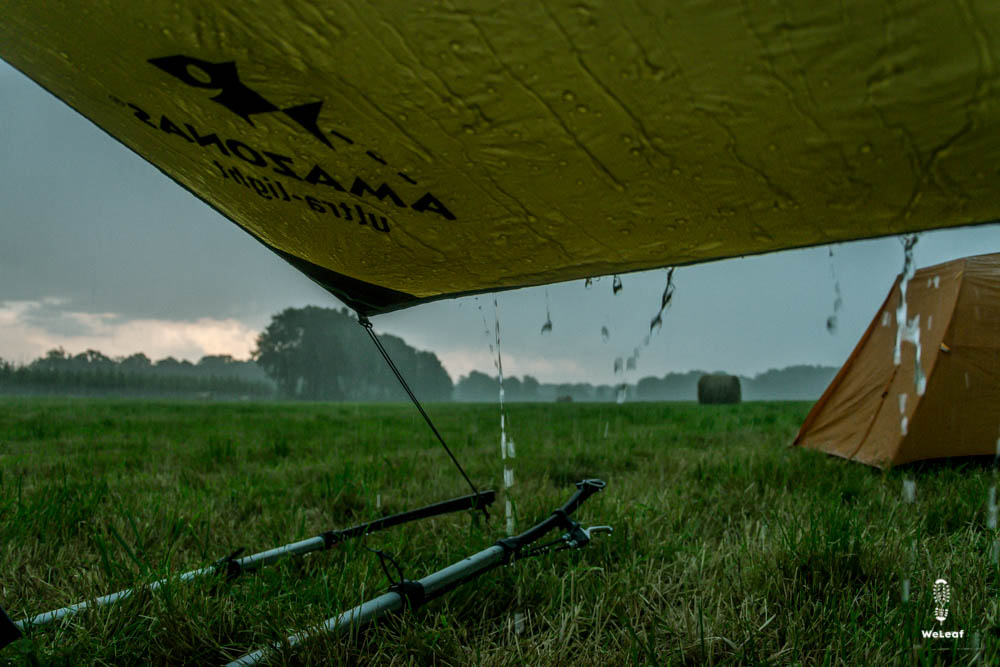
The sunny weather has changed in a few days with a lot of rain. We always find a place to take shelter and then we can continue. The snails love the weather so with our six wheels per person it is an obstacle course to avoid them. It does not always go well and then one of them rolls through the back wheel with a somersault, blob, on our leg. On Saturday, after a good rain shower, we arrive in a small village where we ask a man for a place to put the tent. Diagonally opposite his house is a beautiful field full of hay bales. "The field belongs to the village," he says, "it won't be a problem here." We are delighted to install ourselves next to a hay bale for the first time in four years and build our camp. We have brought our smaller and lighter summer tent and we bring a tarp for the rain so that we can always sit dry. We are happy to cook our delicious dehydrated pasta with tomato sauce that is left over from Canada. Olivier wants to ask the man for water, but the first rain starts tapping the tarp. Not much later it rains so hard that we can fill our pan with water within a minute and cook the pasta. By the time we can eat, we are bending forward with two arms on the tarp. The tarp is fixed to our ski poles, but a dark black storm blows over and tears our tarp on all sides. Zoë shouts a few times "the sticks are not going to hold". "Oh no, is the tent properly secured?" The rain is pouring out of the sky with enormous gusts, but we remain dry. Around us puddles are gathering everywhere and we luckily put our tent on a higher spot. After the worst part passed, we can continue to eat. Two pigeons are cheerfully cooing behind us. "Ah" says Olivier "when the pigeons are cooing, the sun will be looking". "Oh I don't know that proverb" says Zoë with a smile when the sun is just starting to poke through the wild clouds again.
When we lie in the tent in the evening, Olivier says “actually, that proverb doesn't exist” when he gives a kiss with a grin. Then a man comes up and sits next to our tent. “I come to have a look because I got a report from two neighbours that there were people in the field.” “Don’t worry, it’s no problem at all. Are you coming to eat a Sunday breakfast with us tomorrow? ” And so we are chatting at the table in German on Sunday morning at eight o'clock. The man turns out to be a fancier with racing pigeons.
